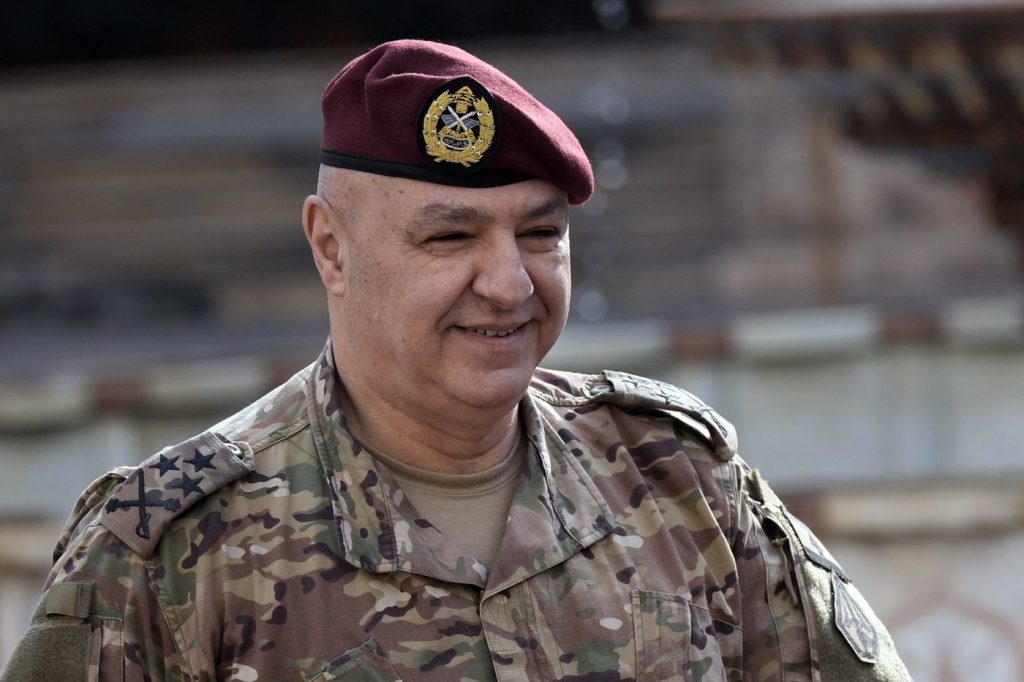BEIRUT (AP) — Lebanon's parliament is set to convene on Thursday to attempt to elect a head of state for the 13th time in a presidential vacuum that has lasted for over two years. Analysts believe that this time, there may be a stronger chance of success.
The parliamentary session comes after a fragile ceasefire agreement put an end to a 14-month conflict between Israel and the Lebanese militant group Hezbollah. Additionally, Lebanon's leaders are actively seeking international assistance for reconstruction efforts. Key contenders for the presidency include the Lebanese army’s commander, Joseph Aoun, who is regarded as the preferred candidate of the United States and Saudi Arabia. In a notable shift, Suleiman Frangieh, the candidate previously backed by Hezbollah, announced on Wednesday that he is pulling out of the race and endorsing Aoun.
The Lebanese military plays a crucial role in maintaining the ceasefire by ensuring that Hezbollah withdraws its forces and weapons from southern Lebanon. This complex situation sheds light on why the election process has been prolonged.
Lebanon's fragmented sectarian power-sharing system contributes to the deadlock, both politically and procedurally. The country has experienced several extended presidential vacancies in its history, with the longest lasting nearly 2.5 years between May 2014 and October 2016, culminating in the election of Michel Aoun as president. Aoun's Free Patriotic Movement party was then the main Christian ally to Hezbollah; however, that alliance has since fractured.
After Aoun's term ended in October 2022, Hezbollah shifted its support to Frangieh, leader of the Marada Movement, a party influential in northern Lebanon and closely tied to former Syrian President Bashar Assad. Meanwhile, Joseph Aoun (no relation to Michel Aoun) emerged as Frangieh’s primary rival despite never officially announcing his candidacy. Political factions opposed to Hezbollah have also presented various candidates.
The last parliamentary vote in June 2023 collapsed when Hezbollah's bloc withdrew after the first round, resulting in Frangieh trailing opposition candidate Jihad Azour and breaking the quorum necessary for the 128-member assembly. Political analysts have noted that the parliamentary speaker, Nabih Berri, who is allied with Hezbollah, has utilized parliamentary procedures to block candidates and prevent consensus from forming.
Experts like Michael Young from the Malcolm H. Kerr Carnegie Middle East Center in Beirut assert that the current electoral deadlock reflects the deeply divided nature of Lebanon’s parliament. Imad Salamey, a political science professor at the Lebanese American University, pointed out that Lebanon's reliance on foreign support often dictates the outcomes of presidential elections. A committee of five countries, including the United States, France, Egypt, Saudi Arabia, and Qatar, has been involved in discussions to resolve the presidential impasse.
The leading candidates for the presidency include:
- Joseph Aoun: At 60 years old, he is seen as the frontrunner, especially following Frangieh's withdrawal. Appointed army commander in March 2017, Aoun has avoided media appearances and has not formally declared his candidacy. However, his election may face procedural hurdles due to a constitutional clause that technically bars a sitting army chief from becoming president.
- Jihad Azour: A prominent economist, he has been backed by factions opposing Hezbollah. He has served as director of the Middle East and Central Asia Department at the International Monetary Fund since 2017, and as finance minister from 2005 to 2008, where he implemented several reforms.
- Elias al-Baysari: The acting head of Lebanon's General Security agency, his career began in the Lebanese army in 1986. He is perceived as being close to Hezbollah and holds a doctorate in law.
The prospects for electing a president on Thursday have improved, particularly after Frangieh’s withdrawal, which has led some to believe that a consensus might finally be reached. The changing dynamics indicate that Hezbollah is in a weakened state due to rising tensions with Israel and increasing domestic dissatisfaction.
Experts emphasize that Lebanon currently operates with a degree of foreign oversight, with the need for American support to manage relations with Israel and secure international aid for reconstruction efforts, particularly in areas impacted by the recent conflict initiated by Israel.










